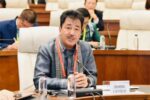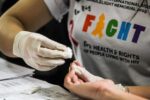PH, Pfizer sign supply deal for 40M doses

MANILA – The Philippine government has made the biggest vaccine procurement for 2021 with the signing of a supply agreement for 40 million doses of Pfizer-BioNTech vaccines.
This was announced by the National Task Force against Covid-19 chief implementer Secretary Carlito Galvez Jr. on Sunday.
“We are very happy to report that the government and the management of Pfizer have finally concluded our negotiations. (Health) Secretary (Francisco) Duque and I signed yesterday (Saturday) the supply agreement for the biggest and most decisive deal we had for 2021,” Galvez said.
“I would like to thank my colleagues from the Philippine vaccine negotiating team from the Department of Finance and our multilateral partner for tirelessly working to secure these much-needed shots that will benefit 20 million Filipinos,” he added
The vaccine czar said the deliveries of 40 million doses of Pfizer-BioNTech vaccines will begin “after eight weeks starting August”, to be delivered in bulk.
“The vaccine demand has begun to ease up for many big and rich countries, as most of them have already acquired more than enough vaccines for their population and have vaccinated many of their citizens. This has allowed the manufacturer to commit to us that deliveries, though still to be made in tranches, will be in bulk,” he pointed out.
The procurement of the 40 million vaccine doses will be financed through a multilateral arrangement with the Asian Development Bank (ADB).
Galvez explained that loan funds from multilateral partners such as the ADB follows a direct disbursement scheme wherein payments are paid directly by the fund manager to the vaccine manufacturer.
“Through this scheme, the Filipino people can be assured that our transactions on vaccine procurement will be transparent, as the funds will not pass through the hands of any government official or agency,” he emphasized.
With the latest supply agreement, the Philippines has now secured the delivery of 113 million doses from five manufacturers namely, Sinovac with 26 million doses, Sputnik V with 10 million doses, 20 million doses from Moderna, 17 million doses from AstraZeneca, and 40 million doses from Pfizer.
The COVAX Facility has also committed to deliver a total of 44 million doses this year, bringing to 157 million doses the total number of doses secured by the Philippines.
Meanwhile, around 16 million doses from Novavax and Johnson & Johnson are still under negotiation.
“The vaccines from Pfizer will significantly boost our national immunization program and will enable us to realize our goal of achieving herd immunity by yearend. This is another positive development that will give a happy and better Christmas for all Filipinos,” Galvez said.
LGUs need to be ready
Galvez reiterated that preparedness on the part of local government units (LGUs) is “imperative” with the confirmed procured supply from Pfizer.
“We again emphasize for LGUs to ensure third party logistics and cold chain service providers for very sensitive vaccines like Pfizer, Moderna, and Sputnik V. We don’t want any vaccine to be wasted because of spoilage and mishandling,” the vaccine czar said.
Pfizer-BioNTech vaccines have storage temperature requirements of minus 80 to minus 60 degrees centigrade while Moderna and Sputnik require minus 20.
Galvez said the government will deploy the procured Pfizer doses to all provinces and regions.
“We intend to deploy the Pfizer, Sputnik V, and Moderna vaccines as soon as possible and distribute it even to rural areas and communities. However, this will not be possible if the receiving LGU is not ready to handle these types of vaccines,” said Galvez.
He said the scheduled delivery of Pfizer and Moderna will coincide with the opening of the national immunization program to the general population, including those under the 12 to 15 age bracket.
However, the NTF clarified that the adult population and the vulnerable sector will still be given priority in the vaccination program.
Galvez said the vaccination of 12 to 15-year-olds may be conducted in the latter part of the year, as the country increases its vaccine inventory and completes the inoculation of the priority sectors. (PR)






